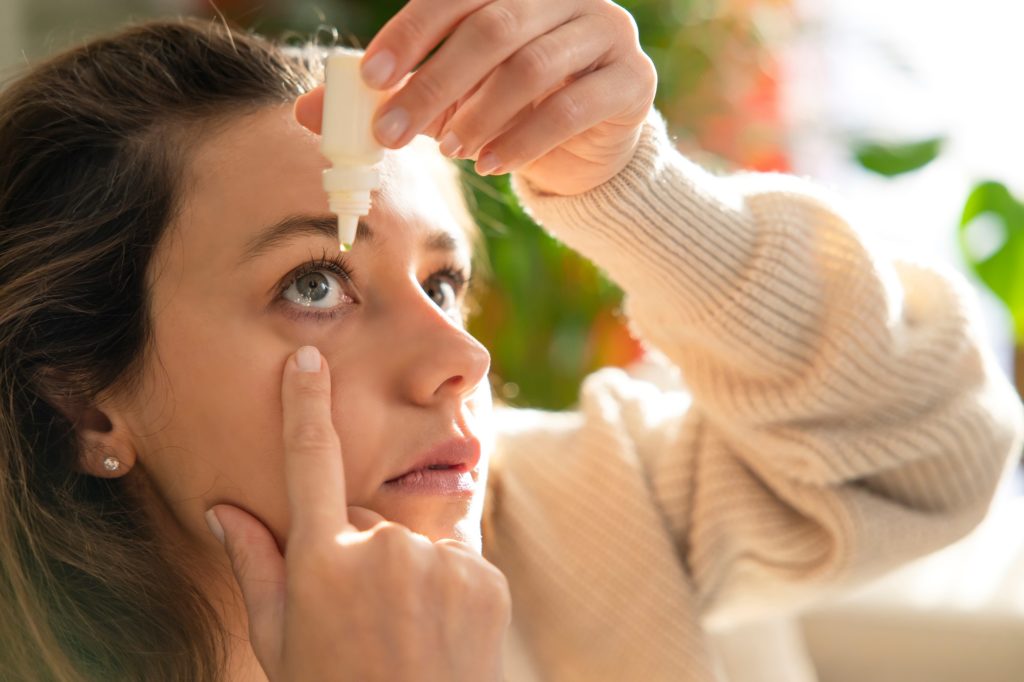Spring signifies the arrival of longer days, more sunshine, blooming flowers and for many of us – ALLERGIES! According to the National Center for Environmental Health, the symptoms of allergic rhinitis (aka hay fever), “…affect as many as 60 million people per year in the United States,” (Centers for Disease Control and Prevention, August 2020). Likewise, allergic conjunctivitis may affect up to 40 percent of the population, (NCBI Bookshelf, August 2021).

Allergies can be mild, and easily treated by over the counter medications; however for some they are more than a mere nuisance and can cause distinct discomfort in day to day life. Furthermore “… in rare cases, allergic conjunctivitis can be very serious and may cause damage to a person’s vision if left untreated,” (Ada, February 2022).
According to the John Hopkins directory of conditions – common symptoms of allergic conjunctivitis can include:
- “Intense itching of eyes and urge to rub eyes
- Red eyes
- Watery or white, stringy mucus discharge
- Swollen eyelids,” (Karakus, Sezen; Allergic Conjunctivitis).
These symptoms may be accompanied by “hay fever” symptoms – such as sneezing, and runny or itchy nose.
There are a couple of ways to prevent, or lessen allergy symptoms.
- When possible avoid common allergens – one way to be sure is to check the pollen count and plan your day accordingly
- If you are exposed to allergens, such as outside pollen or inside dust – take time to wash your face after exposure.
- Wash your clothes frequently, and take regular showers or baths to cut down on exposure to allergens
Though allergic conjunctivitis can damage eyesight in very rare cases, the majority of allergy sufferers will be able to treat their symptoms successfully at home. Some options of at home treatment include:
- Placing a cold compress over they eyes, making sure to change it regularly
- Avoid wearing makeup or contact lenses while experiencing symptoms
- Apply over the counter artificial tears (eyedrops) to the eye
- Try an over the counter eye drop made specifically to treat the symptoms of allergies

If the symptoms persist after avoiding the allergen and trying one or more of these at home treatments, then seeking professional help is your next step. Your eye doctor will be able to diagnose your allergic conjunctivitis and prescribe the best option for you to feel some relief from your seasonal allergies.
